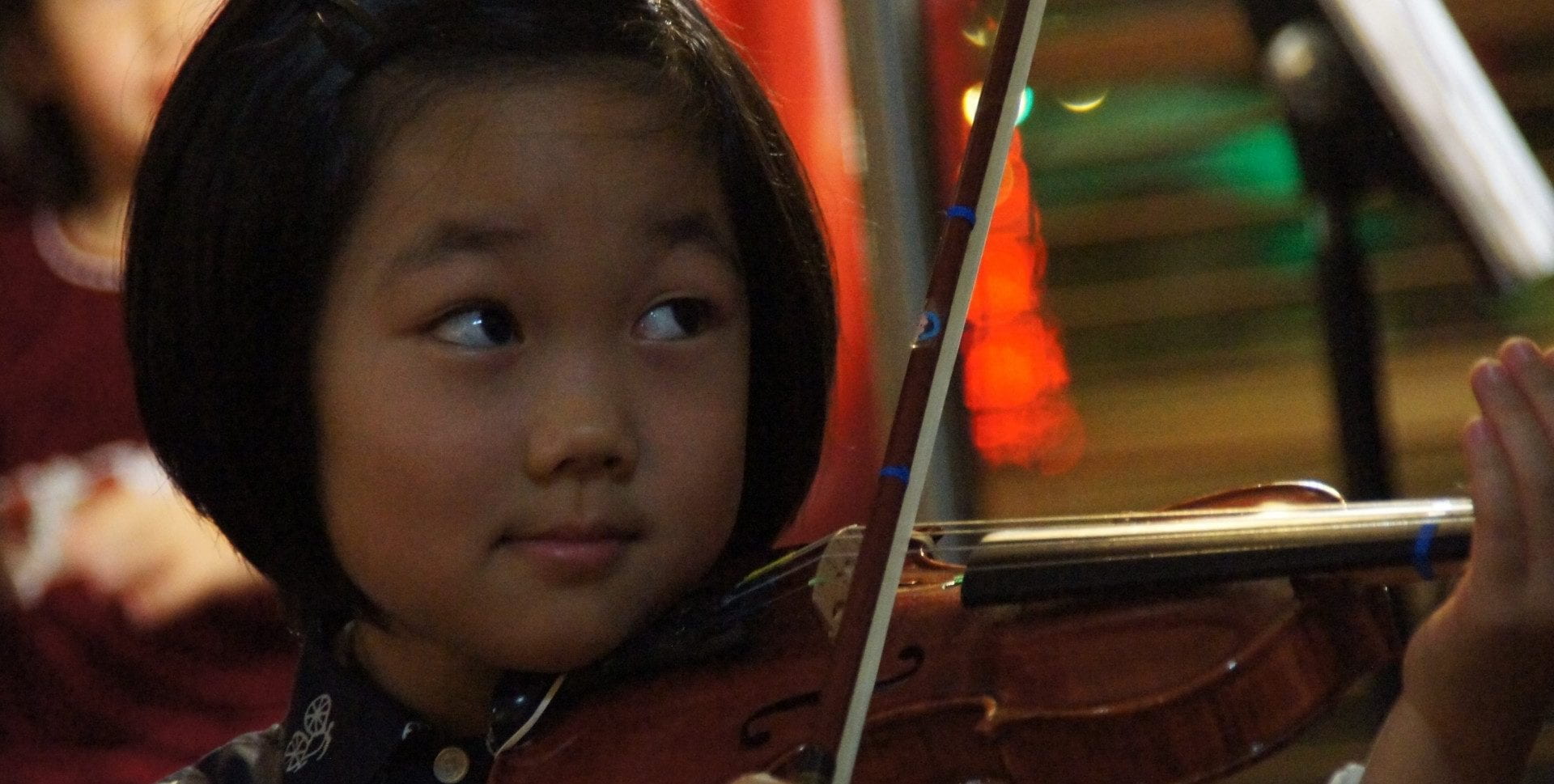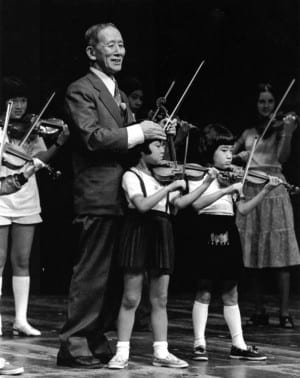
Suzuki Music School of Arkansas
The Suzuki Music School is a student-centered community committed to the pursuit of personal growth and artistry through musical instruction.

The Suzuki Music School of Arkansas is a non-profit organization founded at the University of Arkansas in 1977. SMSA currently provides musical instruction in cello, flute , guitar, piano, and violin to students ranging in age from age 3 to adult. The purpose of the Suzuki Music School of Arkansas is to foster the development of ability in all students regardless of age race, and special needs.
We share the values of the Suzuki Association of the Americas: teaching with integrity and respect for families and colleagues building community, pursuing excellence, and preserving the Suzuki legacy of developing noble character through the nurturing of musical ability in a loving environment.
Over 50 years ago, Japanese violinist Shinichi Suzuki realized the implications of how children learn to speak their native languages with ease. He began to apply the basic principles of language acquisition to learning music. The ideas of parent responsibility, loving encouragement and constant repetition are some special features of the Suzuki approach.
Basic Elements of the Suzuki Method
- Listening. Children learn by listening and imitating. Suzuki children repeatedly listen to pieces they will be learning. The student’s success is directly related to the amount of time spent listening to the repertoire.
- Parents As Partners. Suzuki parents are active participants in their children’s musical education. They attend lessons and practice with their children daily. Dr. Suzuki believed that parents create the desire to learn in their children. Parents work closely with their teachers to provide the optimum learning environment by trusting the teacher, taking notes during lessons, and following through with assignments.
- Nurturing Environment. Suzuki parents and teachers nurture their children with love and respect. “Where love is deep, much can be accomplished”—Shinichi Suzuki
- Repetition. Reviewing pieces that have been mastered is a key element to refining technique, improving tone, learning self-expression, and the joy of making music.
- Small Steps. Each skill must be mastered before proceeding to the next. Suzuki teachers guide their students at a rate that encourages mastery of skill. Suzuki parents must wait for their teachers to guide them.
- Group Lessons and Private Lessons. Regular attendance to weekly private lessons and group lessons is essential to a student’s success.
- Repertoire. All students learn from a core curriculum. Students are taught the same pieces, allowing them to play together and learn from one another. Suzuki students from all around the world have a common bond when they come together to play concerts. Teachers are encouraged to supplement. Dr. Suzuki selected pieces from the standard repertoire of the great masters including Bach, Mozart, and Beethoven. These pieces were selected to facilitate specific skills needed to master the instrument.
- Teacher Training. The Suzuki Association of the Americas educates and trains teachers. The quality of this instruction is exceptional and all teachers are expected to take courses and continually expand their skill.
